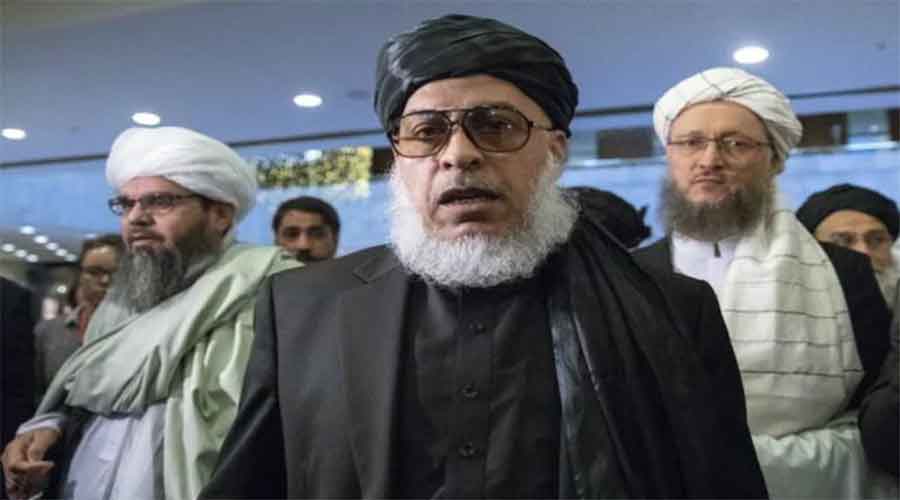India's immediate focus is to ensure that Afghan soil is not used for terrorist activities directed against it, the Ministry of External Affairs (MEA) said on Thursday, two days after the Indian envoy to Qatar held talks with a top Taliban leader in Doha.
MEA Spokesperson Arindam Bagchi said India used the meeting in Doha to convey its concerns over the possible use of the Afghan territory for anti-India activities and to bring back the remaining Indians from Afghanistan.
"We received a positive response," he said referring to the meeting between Indian Ambassador to Qatar Deepak Mittal and Taliban leader Sher Mohammad Abbas Stanekzai.
To a volley of questions on whether India would recognise a Taliban regime in the backdrop of the meeting between the two sides, Bagchi said: " It was just a meeting. I think these are very early days."
Asked whether India will have more meetings with the Taliban, the MEA spokesperson said he does not want to speculate.
"I would not like to speculate on the future. I have no update to share on that," he said.
On bringing back the remaining Indians from Afghanistan, Bagchi said India will be able to revisit the matter once the Kabul airport resumes operation.
The United Nations' food stockpiles in Afghanistan could run out this month and there is a critical need for USD 200 million to provide food to the most vulnerable, a senior UN official had warned earlier in the day,
Deputy Special Representative and Humanitarian Coordinator in Afghanistan Ramiz Alakbarov said that at least one-third of the conflict-torn country's population currently is not sure that they will have a meal every day or not. This is what is going on.
"By the end of September, the stocks which the World Food Programme has in the country will be out. We will be out of stock. We will not be able to provide those essential food items because we'll be out of stock," Alakbarov told reporters during a virtual press briefing from Kabul on Wednesday.
"For us to keep the current demand, we need at least USD 200 million only for the food sector to be able to provide food to the most vulnerable, he said.
He noted with concern that most of those vulnerable are children and more than half of the children in the country under the age of five are suffering from extreme malnutrition and "those children will not get food.
New Taliban govt
Taliban rulers were preparing on Thursday to unveil their new government as the economy teetered on the edge of collapse more than two weeks after the Islamist militia captured Kabul and brought a chaotic end to 20 years of war.
Taliban official Ahmadullah Muttaqi said on social media a ceremony was being prepared at the presidential palace in Kabul, while private broadcaster Tolo said an announcement on a new government was imminent.
The Islamist movement's supreme leader, Haibatullah Akhundzada, is expected to have ultimate power over a governing council, with a president below him, a senior Taliban official told Reuters last month.
The legitimacy of the new government in the eyes of international donors and investors will be crucial for Afghanistan's economy, which is likely to collapse following the Taliban's return to power, analysts said.
The supreme Taliban leader has three deputies: Mawlavi Yaqoob, son of the movement's late founder Mullah Omar; Sirajuddin Haqqani, leader of the powerful Haqqani network; and Abdul Ghani Baradar, one of the founding members of the group.
An unelected leadership council is how the Taliban ran their first government which brutally enforced a radical form of Sharia law from 1996 until its ouster by U.S.-led forces in 2001.
The Taliban have tried to present a more moderate face to the world since they swept aside the U.S.-backed government and returned to power last month, promising to protect human rights and refrain from reprisals against old enemies.











